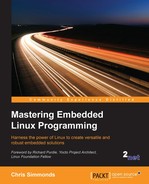What happens when the program you are debugging forks? Does the debug session follow the parent or the child? The behavior is controlled by follow-fork-mode which may be parent or child, with parent being the default. Unfortunately, current versions of gdbserver do not support this option, so it only works for native debugging. If you really need to debug the child process while using gdbserver, a workaround is to modify the code so that the child loops on a variable immediately after the fork, giving you the opportunity to attach a new gdbserver session to it and then to set the variable so that it drops out of the loop.
When a thread in a multithreaded process hits a breakpoint, the default behavior is for all threads to halt. In most cases this is the best thing to do as it allows you to look at static variables without them being changed by the other threads. When you recommence execution of the thread, all the stopped threads start up, even if you are single stepping, and it is especially this last case that can cause problems. There is a way to modify the way GDB handles stopped threads, through a parameter called scheduler-locking. Normally it is off, but if you set it to on, only the thread that was stopped at the breakpoint is resumed and the others remain stopped, giving you a chance to see what the thread alone does without interference. This continues to be the case until you turn scheduler-locking off. Gdbserver supports this feature.
